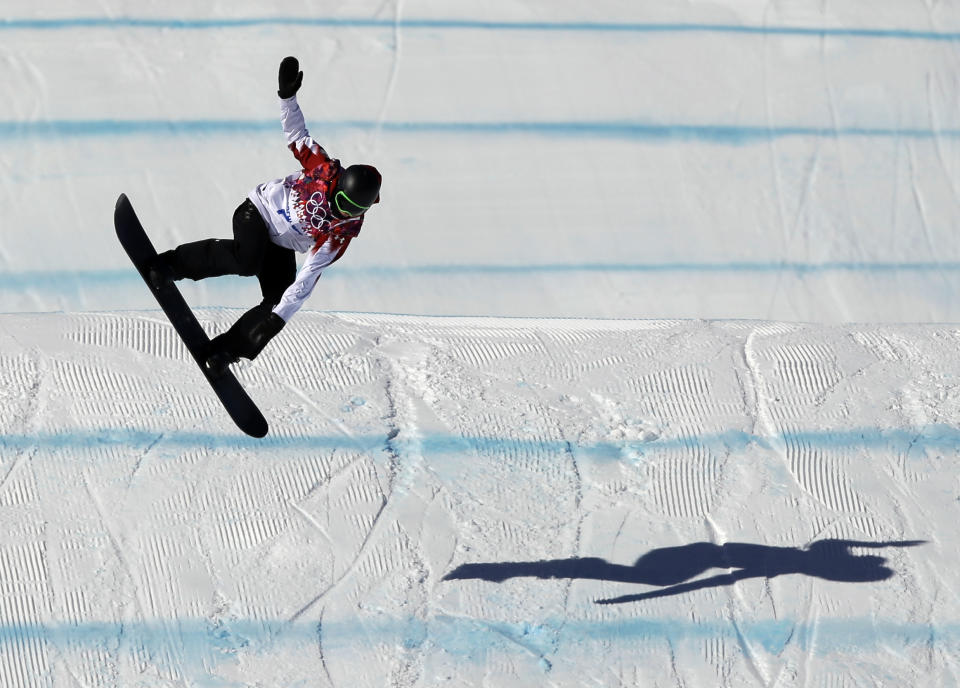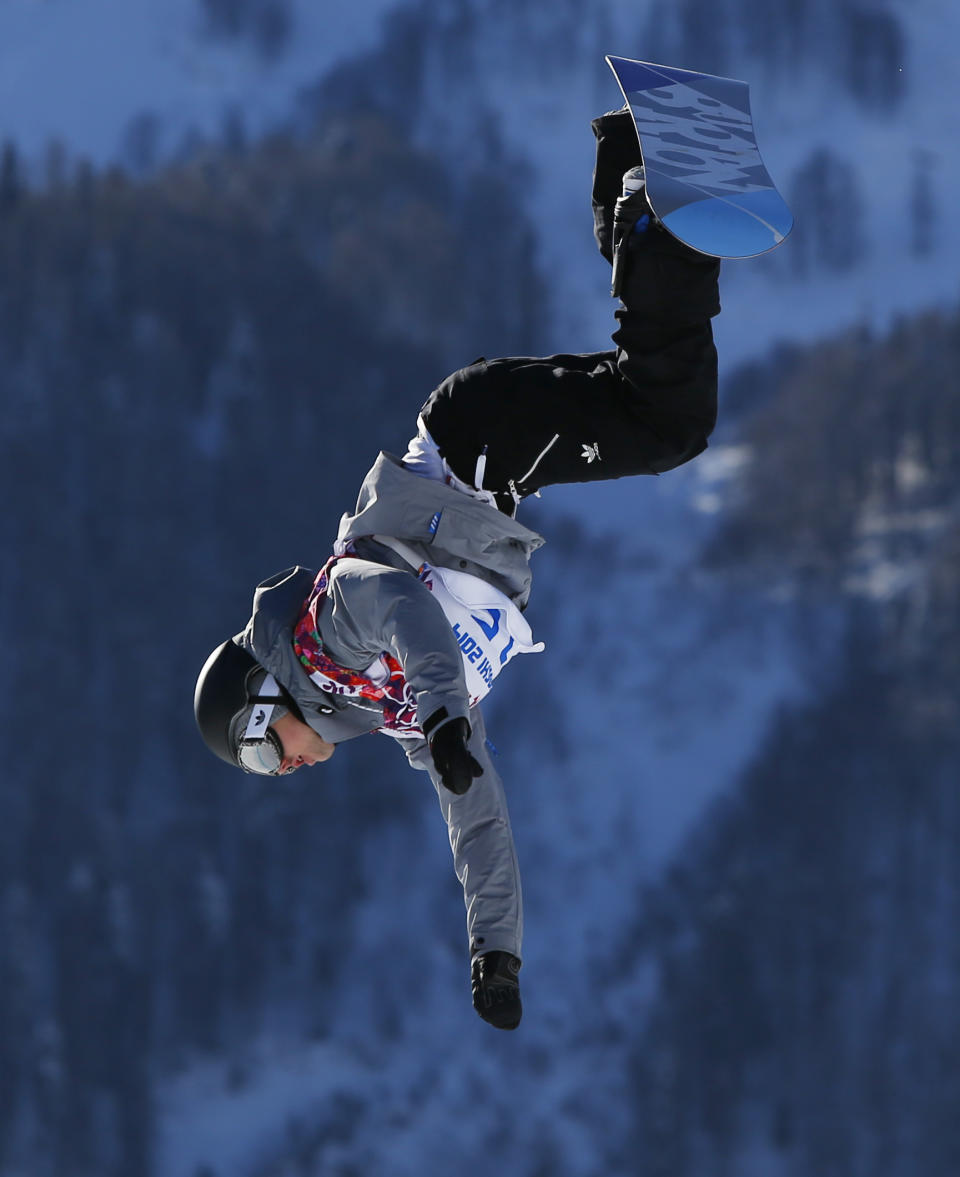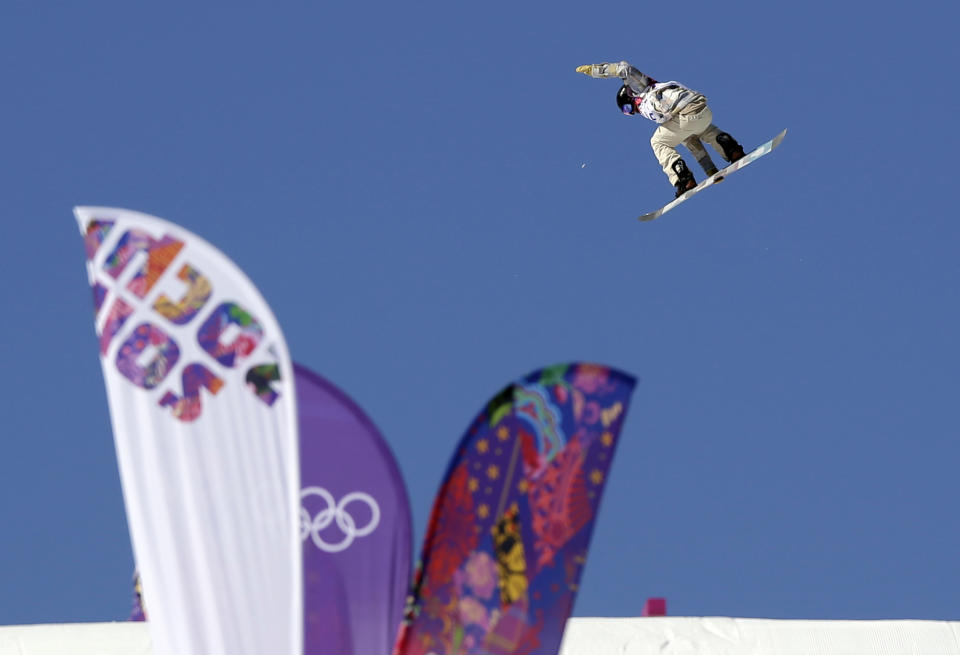Canadian Parrot leads men's slopestyle qualifying
KRASNAYA POLYANA, Russia (AP) — Slopestyle made its Olympic debut on Thursday without Shaun White and without any of the drama the sport's biggest star feared when he decided to pull out of the event on the eve of the Games.
Max Parrot of Canada posted a score of 97.50 to earn the top spot in qualifying, leading a pack of eight riders who moved automatically into the finals. The remaining athletes will return to the rapidly improving course Saturday morning to vie for one of the four remaining spots.
Roope Tonteri of Finland, Staale Sandbech of Norway and Sven Thorgen of Sweden also had little trouble navigating the sun-splashed mountain, all posting scores in the 90s that seemed to quell the notion the field was going to struggle on a track deemed anywhere from ambitious to treacherous during training.
Yet White's absence overshadowed the premiere — a day before the Sochi Games opening ceremony — of one of the latest action sports to find its way onto the Olympic slopes.
The two-time halfpipe gold medalist was hoping to pull a halfpipe-slopestyle double but jammed his wrist in practice on Tuesday and decided he didn't want to jeopardize his chance at becoming the first American male to win gold in three consecutive Winter Games.
White cited concerns about the course's safety as the main reason for his change of heart, yet qualifying featured nothing but the typical spills that come with flinging yourself down a series of rails and daredevil-inviting jumps that looks like a mixture of skateboarding and gymnastics.
"There's been couple (of) contests in a row where he's pulled out at the last minute," Parrot said. "I'm just mad about it because I want to compete against him. I want to know who is better. It's not as exciting to compete in the Olympics when you know other riders are not there."
Still, plenty of talent remains. So much, in fact, one of the top contenders will have some work to do to reach the podium.
Canadian Mark McMorris, considered a gold medal favorite even before White skipped out, slammed into the snow during his first qualifying run, a jolt that did little to help the fractured rib he sustained at X Games last month. McMorris — dubbed "McRib" after his injury — responded with a smooth 89.25 on his next trip, but now will need to navigate semifinals if he wants a shot at reaching the podium.
"I just didn't think my run was worth such a low score," said McMorris, who placed seventh in the 14-man heat. "I didn't see what was that much more insane about their runs, but it's a judged sport. I'm just happy with the way I rode and I'll try to figure out something else for Saturday. That's all I can focus on now."
Even if much of the focus remained on who wasn't there.
White's decision to not even compete earned him an unusual amount of criticism for one of the greatest snowboarders in history.
Canadian Sebastian Toutant called White out on Twitter after his withdrawal, claiming White's real motivation was the realization he couldn't win. The tweet was later deleted, but Toutant stood behind his stance on Thursday that the course wasn't too dangerous for the best riders in the world.
"Slopestyle is an extreme sport," said Toutant, who earned a spot in the finals. "If you come here and think there's no risk, go do something else."
White did, although not early enough for the U.S. to replace him. That's what irked American Charles Guldemond, who felt all along White would find a way out of slopestyle.
"I was a little bummed," Guldemond said. "There was a lot of guys I trained really hard with sitting in that fifth spot and it's pretty unfortunate that they missed their opportunity to come to the Games, so that was a pretty big blow."
Guldemond, like most of his competitors, said the minor furor over course conditions was overblown.
Though hardly perfect when practice began on Monday, Guldemond pointed out that's not much different than any other competition, adding he thinks it's the second-best course in the world behind the ones the X Games uses in Aspen.
"Everything we've done here is completely normal," he added.
Maybe, but for a sport being introduced on the world stage for the first time, White's presence would have been another step toward mainstream relevance. Instead his concerns were magnified under the unique prism the Olympics provide. The notion the Russians had built a course the world's best couldn't handle is misguided.
"It was never too dangerous," Sandbech said. "It was just not perfect. And you'd expect four years of planning an Olympic slopestyle course to be perfect the first day."





